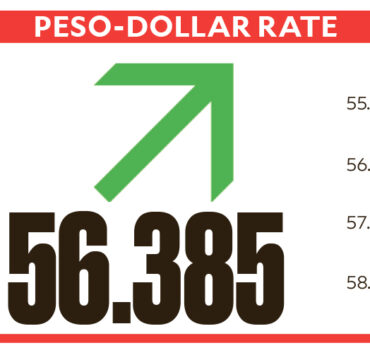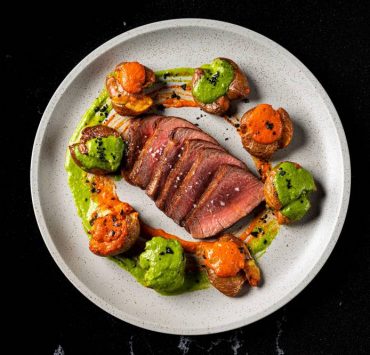His leafy ambition: To make ‘kangkong’ world-class
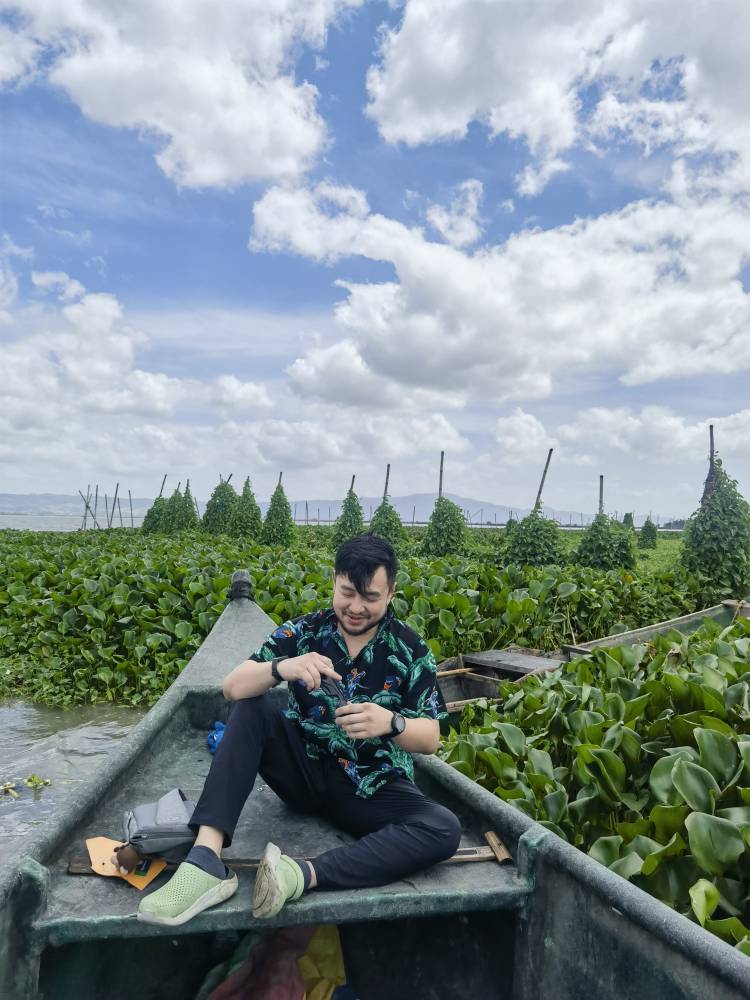
Entrepreneur Frank Gaw’s casual snack of kangkong chips at a local Filipino restaurant sparked an idea. Five years later, Kangkong King (KKK) has transformed the humble water spinach into a nutritious and tasty convenience food.
The brand’s name, a playful reference to King Kong, reflects Gaw’s entrepreneurial spirit and his Chinese zodiac sign, the monkey. With its signature crispy texture and diverse flavors, KKK has quickly gained a loyal following.
One of KKK’s standout features is its commitment to quality and sustainability. The chips are handcrafted using fresh, locally sourced water spinach and fried in coconut oil. This not only ensures a superior taste but also supports Filipino farmers and reduces environmental impact.

Popular flavors
As the founder and president of Kangkong King Food Corp., Gaw has a lofty ambition: to elevate kangkong to a world-class Filipino product and provide more jobs to farmers. KKK’s unique selling point lies in its clean, handcrafted kangkong fried in coconut oil. Of the eight available flavors, salted egg, original with chickpea flavoring and barbecue are the most popular.
Gaw believes that KKK’s salted egg flavor can compete with a renowned Singaporean brand, which is priced significantly higher than Kangkong King’s P180. He has also developed cheese and sweet corn flavors for children and recently introduced a mild sweet tomato flavor.
“Our chips are proudly made in the Philippines,” he says. “We’re not only providing employment opportunities but also helping to reduce food waste. Kangkong was once overlooked, but now we are even exporting it.”
Gaw recalls a time when kangkong would rot in the waterways of Rizal and Pampanga. However, when he began buying the vegetable from farmers, even during the pandemic, they started taking it more seriously. KKK continued to order kangkong throughout the pandemic, ensuring a steady supply of chips.
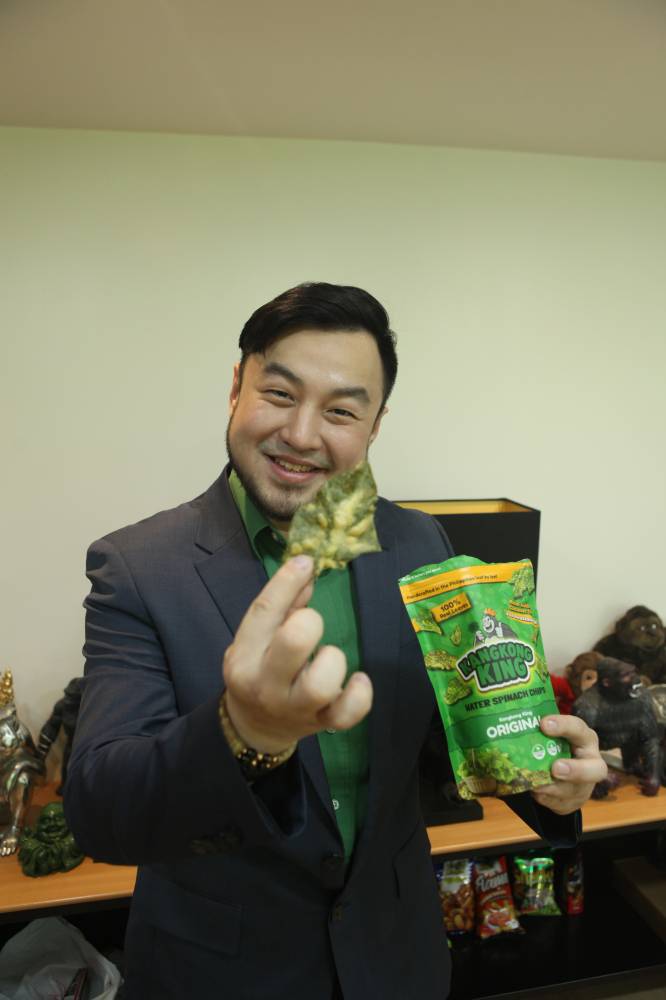
Gifts
“We source kangkong from Rizal and Pampanga, depending on the weather conditions,” Gaw explains. “The company receives three tons of kangkong per week. We also utilize the stems, which are donated to local zoos” as animal feed ensuring that no part of the plant goes to waste.
Gaw’s dedication to supporting local farmers has earned him a special place in their hearts. During his regular visits to their farms, he is treated with the utmost respect and generosity, receiving gifts of native chickens and piglets. In turn, he shares these gifts with his employees, fostering a sense of community and gratitude.
The positive impact of KKK on the local economy is undeniable. Farmers have expanded their landholdings and seen their livelihoods improve, inspiring their neighbors to join the kangkong farming movement.
Gaw’s foray into food began with a team of dedicated individuals. He recruited his friends, Andrew Tan Lee and Ben Ng, to join the venture. Ng’s expertise in research and development led to the creation of the unique water spinach chips and their various flavors. Gaw’s sister, Anne, took on the role of media relations, ensuring that KKK’s story reached a wider audience.
Kangkong King initially offered freshly cooked water spinach in cups at select malls, with sizes named after different monkey species. As the pandemic forced a shift to packaged chips, KKK maintained its commitment to nutritional value, freshness and shape.
Looking ahead, Gaw envisions expanding the company’s product line to include products made from the stems of the water spinach. He dreams of creating a nutritious soup using the stems and chicken cubes, similar to the popular Filipino dish lugaw.
By partnering with train stations, Kangkong King hopes to provide affordable and nourishing meals to the working class, offering a healthier alternative to street food. Gaw has seen mall workers buy a pack of freshly cooked KKK and eat them with rice shared with friends.
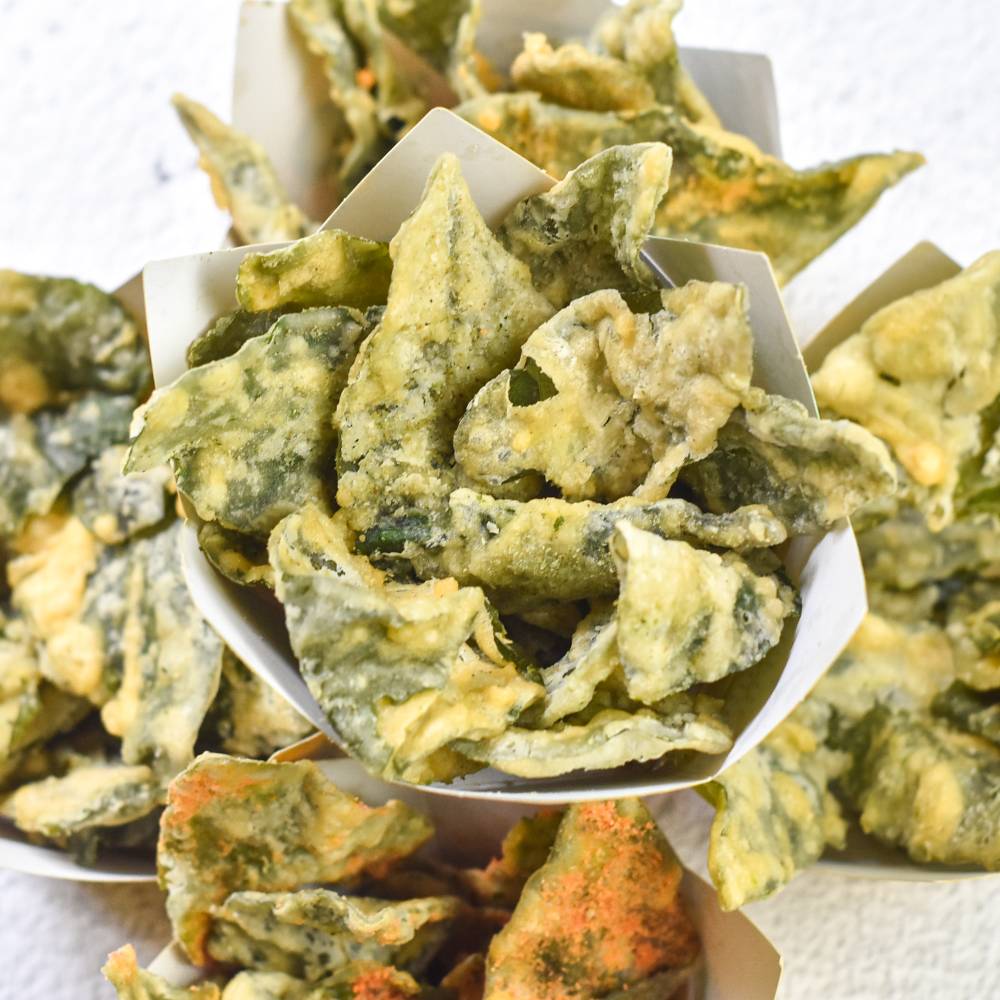
Feng shui
The success of KKK can be attributed in part to the unique advice and support of his father, Francis Benedict Gaw, a psychic and feng shui consultant. The first KKK kiosk was opened on the younger Gaw’s birthday, Sept. 5, 2019, following his father’s recommendations regarding location and placement of the cashier and cooking station. The elder Gaw also regularly visited the commissary in Malabon to ensure the absence of any negative energy.
Over the past five years, KKK King has achieved significant milestones, including obtaining local and international certifications for manufacturing and safety standards, such as halal and FDA approval. The company’s strict adherence to Hazard Analysis Critical Points (HACP) has earned its commissary high marks for food safety. Looking ahead, Gaw aims to secure ISO (International Organization for Standardization) certification to further bolster the brand’s credibility.
These certifications have opened doors for KKK, allowing it to be featured in major malls, specialty stores, e-commerce platforms and international markets. The brand has expanded its reach to over 15 countries, including Filipino stores in the United States, United Arab Emirates, Singapore and Italy. With the support of the Department of Trade and Industry, KKK has participated in international food fairs in China and Malaysia, showcasing its products to a global audience.














